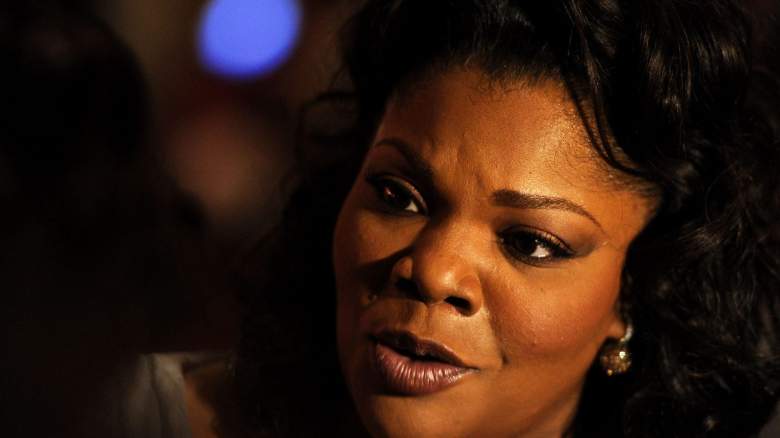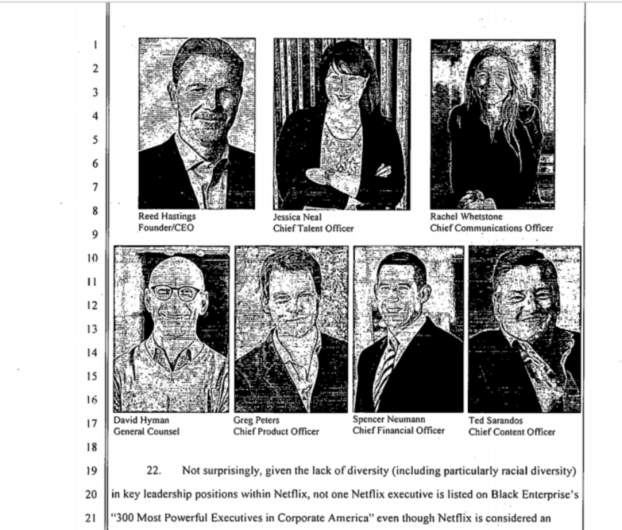
Getty/Kevin Winter Mo'Nique at the Academy Awards Nominations announcement in 2011.
Mo’nique is an Oscar-winning actress and comedian, who is now suing Netflix for discrimination during negotiations for a new comedy special.
Her lawsuit, filed in California Central District Court, accuses the streaming giant of “perpetuating the pay gap suffered by Black women” and uses Netflix’s $13 million deal with white New York actress and comedian Amy Schumer as evidence that Mo’Nique was not treated fairly by the company.
Netflix had pushed to have the lawsuit thrown out, but on Friday, a federal judge cleared the way for Mo’Nique to move forward, ruling that the comedian had “plausibly” argued that Netflix wasn’t negotiating in good faith with her, NPR reported.
Here’s what you need to know:
1. Netflix Offered Mo’Nique $500,000 for a Stand-Up Special in 2017; She Called it a ‘Discriminatory Low-Ball Offer’ & Pointed to Amy Schumer’s $13 Million Deal

Youtube Netflix
According to her complaint, reviewed by Heavy, Mo’Nique was approached by Netflix executives in November 2017, who were taken with her stand-up show and gave her “effusive praise,” then worked on recruiting her for a special until January 2018, when they made an official offer.
That offer was for $500,000, for a one-hour special that Netflix would own the complete rights to, according to her complaint. According to Mo’Nique, there was also a stipulation that she would have to keep the amount of the fee to herself if she agreed. The offer was “clearly discriminatory,” Mo’Nique claimed.
Mo’Nique rejected the offer and pushed back, writing to Netflix and decrying their “racially and gender-biased” offer. She told Netflix she was “blindsided,” according to her complaint.
During further negotiations, one Netflix executive said, “I want you to know I know Mo’Nique is a living legend,” according to the complaint. But still, Netflix wouldn’t budge.
2. Mo’Nique Called for a Boycott of Netflix; Actress & Comedian Wanda Sykes Claimed That After the Boycott, Netflix ‘Moved That Comma’ With Their Offer to Her
Mo’Nique publicly called for a boycott of Netflix, explaining her reasoning on an episode of The View in February 2018, after negotiations ceased.
“Initially you’re told, ‘Build up your resume,'” she said. “Then you build up your resume, then they say, ‘Well, we see the resume, we’ll get them the next time.’ And you never get your next time.”
Actress and comedian Wanda Sykes publicly supported Mo’Nique’s cause, talking about her own deal with Netflix that she turned down because it was too low, Variety reported.

Wanda Sykes
“I had to step up and say something,” Sykes told the outlet. “I also felt I was low-balled.”
In 2019, Sykes received a very different offer from Netflix for her special, Wanda Sykes: Not Normal, VMH Magazine reported.
Sykes didn’t say how much Netflix’s offer was specifically, just, “They moved that comma.”
3. Mo’Nique Pointed to a Lack of Diversity in Netflix Leadership & Several Multi-Million-Dollar Deals the Company Made with Male Comedians

Pacer.govMo’Nique alleged in her lawsuit that a lack of diversity in Netflix’s leadership has helped lead to severe disparity between fees for Black women comedians and their male counterparts.
Mo’Nique listed several high-profile male comedians in her suit, as well as the estimated fees they negotiated with Netflix. Jerry Seinfeld, she claimed, struck a $100 million deal with the company, while Dave Chappelle got $60 million.
She also pointed to a lack of diversity on Netflix’s management team, including photos of the six top players in her suit.
In general in the United States, also, Black women are paid an average of 61 cents for every dollar a white man is paid, according to U.S. Census data analyzed by CNBC. Mo’Nique noted that some experts believe that if the trend continues, it could take 100 more years for Black women to achieve equality of pay.
“I couldn’t accept that low offer, because if I did … I couldn’t sleep at night,” Mo’Nique wrote. “If I accepted $500,000, what does Tiffany Haddish have coming? If I accept that, what does the Black female comedian have coming? Because what they’ll say is, ‘Mo’Nique accepted this and she’s got that.'”
4. Netflix Asked a Federal Judge to Dismiss the Suit, But on Wednesday, the Request Was Denied
Netflix alleged in court papers that, although Mo’Nique was suing for retaliation in addition to discrimination, she didn’t allege any actual “adverse employment action” after she initially complained about the company’s offer. Judge Andre Birotte, Jr., however, found that she had a “plausible allegation.”
“Mo’Nique plausibly alleges that, after she spoke out and called her initial offer discriminatory, Netflix retaliated against her by shutting down its ‘standard practice of negotiating in good faith that typically results in increased monetary compensation,” he continued.
The motion to dismiss was denied entirely.
Mo’Nique’s attorney, David deRubertis, told Heavy that the decision was a victory, and said it could be the start of something good in Hollywood for minority actors.
“Today’s ruling is an important victory for Hollywood talent who, just like all other workers, need protections against retaliation if they raise concerns about pay discrimination during the hiring process,” deRubertis said. “Employers in the entertainment industry need to take pay discrimination concerns seriously, fix them if the concerns have merit, and never retaliate against those who have the courage to speak up about equal pay.”
Netflix declined to comment on Friday.
4. Mo’Nique, Also Known As the ‘Queen of Comedy,’ Won the Academy Award for Best Supporting Actress for ‘Precious’ & Was the First Black Female Comedian to Land a Las Vegas Residency, She Says

Getty/Kevin WinterMo’Nique at Epcot in Florida in 2010.
In her court papers, Mo’Nique charts her decades long career path from her first stand-up appearance at an open-mic in 1988, through her 2009 Oscar win and, most recently, her Las Vegas residency last year.
In 2009, she picked up Best Supporting Actress for playing a terrifying, abusive mother in Lee Daniels’ film Precious. In an emotional acceptance speech, she thanked Tyler Perry and Oprah Winfrey for their part in bringing the difficult novel by Sapphire to the screen, as well as Hattie McDaniel. The actress was the first Black person to win an Oscar, and she won it for playing the role of “Mammie” in Gone with the Wind in 1939, Hollywood Forever reported.
“I’d like to thank Hattie McDaniel for enduring all she had to so that I would not have to,” Mo’Nique said. “Tyler Perry and Oprah, because you touched it, the whole world saw it … Sometimes you have to forego doing what’s popular in order to do what’s right.”
According to her complaint, Mo’Nique was also the first Black woman to ever be given a Las Vegas residency in 2019.
READ NEXT: Beauty Pageant Winner Stripped of Title for ‘All Lives Matter’ Post: Reports
